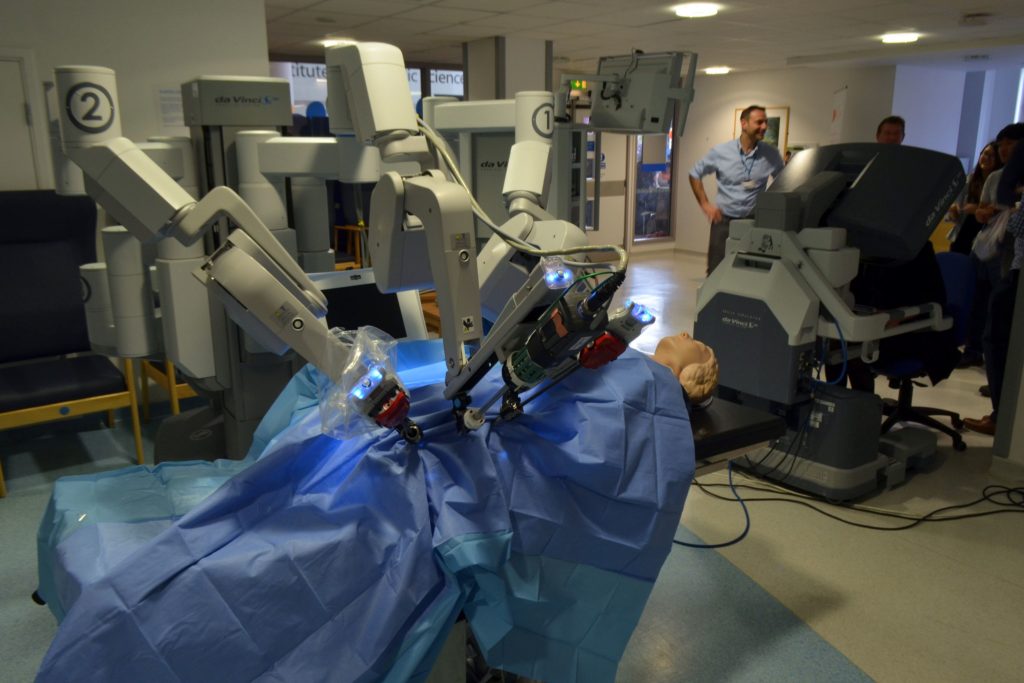Robots before are just in the imagination of human beings but are now turning into a reality. In fact, they are being used in the healthcare industry to perform surgical operations. Surgical robots, with the implementation of deep learning applications are well-known to assist surgeons to make it easier to accomplish.
The Benefits of Surgical Robots in Healthcare
There are multiple reasons why robots are being used in surgical procedures. As an example, robots are often used to assist with difficult surgeries that require a high level of precision, which can be difficult for human surgeons to perform, without risk.
Generally, robots have a higher degree of precision and flexibility than human beings, which makes the robots a great surgical tool. They usually leave smaller incisions and patients often have a shorter recovery period, following surgery, that involved a specially designed surgical robot.
Lastly, surgeries that use robots also prevent blood loss and are less painful for patients. So expect to see and hear about more robots assisting in surgical operations, in the near future.
Surgical Robots Wouldn’t Replace Human Surgeons
As human judgment is extremely important when it comes to making critical, life or death situations and a robot wouldn’t be capable of making the best possible judgments in many circumstances.
Instead, robots work best when they are controlled or assisted by traditional human surgeons, who have plenty of experience under their belts and who are able to make wise, critical decisions to save individuals lives.
Robots are frequently used to perform a wide array of operations such as heart, spine, intestinal and bone surgery with the help of a health professional.
Surgical Robots are Costly
One of the reasons why surgical robots aren’t used in all surgical operations is that the average surgical robot costs between 1-2 million dollars. With the surgical robots used in open surgeries, costing upwards of 2 million dollars.
In order to be able to competently use a new robotic surgical system, most surgeons need to undertake 150 training sessions. However, as more and more surgeons are training to be able to operate robotic surgical systems, in the next decade there should be surgeons being assisted by robots in the next ten years.
Hopefully, you now understand the importance of surgical robots in the health care system and the future of the medical industry.
To read more on topics like this, check out the health category.
